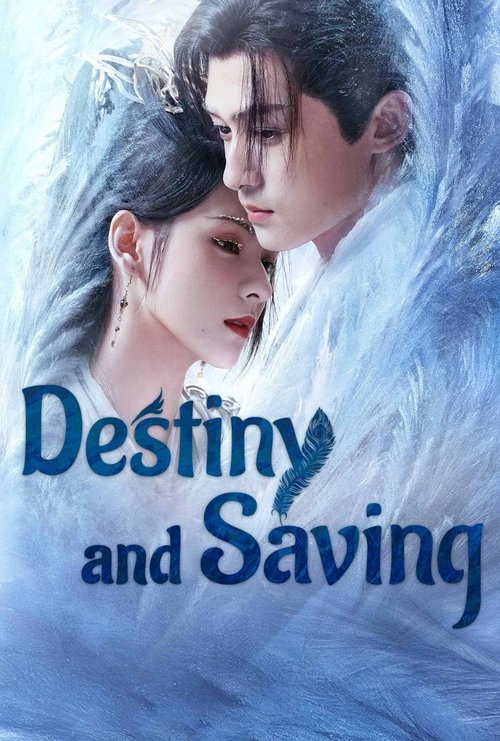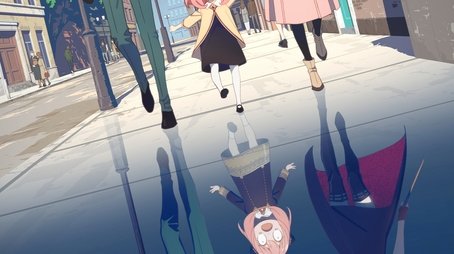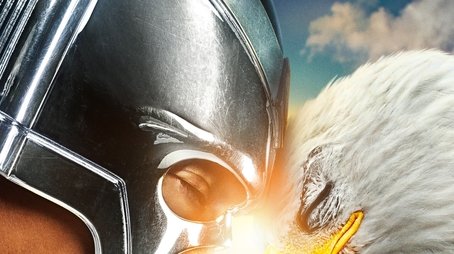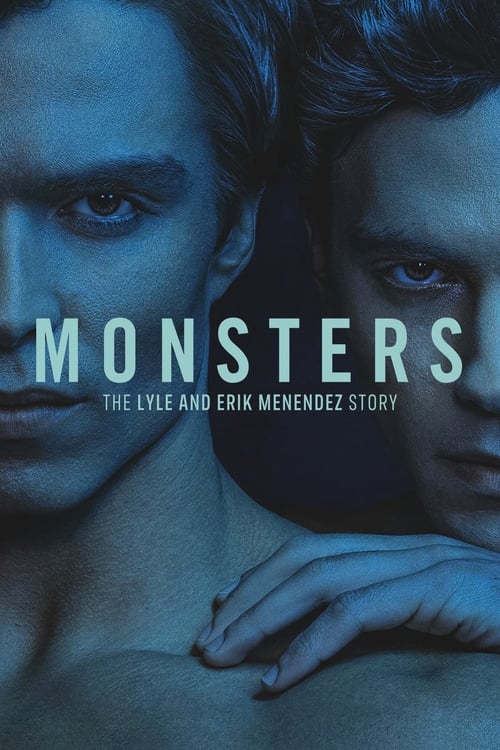
Ask Your Own Question
What is the plot?
The story begins with the ancient conflict between the Righteous Alliance and the Demonic Sect, who have been at war for a thousand years. The leaders of these factions, Fengyue Jianzun of the Righteous Alliance and Feng Xingtian of the Demons, duel to the death, setting the stage for their descendants' fates.
Shen Shaoyou, descendant of the Righteous Alliance, and Feng Lixue, heir to the Demonic Sect, unexpectedly become close friends despite their inherited enmity. During an incident where Shen Shaoyou tries to protect his master, he accidentally pushes Feng Lixue off a cliff. Feng Lixue is saved by Chong Hua, a demon, who takes her away. This event rewrites their destinies: Lixue is to become the master of the demons, and Shaoyou the leader of the righteous sect, destined to fight and kill each other.
Ten years later, Shen Shaoyou and Feng Lixue reunite. Lixue, now suffering from amnesia and going by the name Wu Chen, uses Shaoyou's guilt over the cliff incident to get close to him, carrying out several assassination attempts. However, Shaoyou's tolerance, kindness, and love gradually move her, and she secretly develops affection for him.
When Lixue decides to abandon her father's hatred and turn towards good, Chong Hua intervenes to create misunderstandings and hatred between her and Shaoyou. Despite this, Lixue eventually becomes the master of the demons, and Shaoyou rises to lead the Righteous Alliance. Their paths lead to a deadly duel between the two leaders.
During the duel, they confront each other with all the weight of their past and their roles. After a fierce battle, they sense each other's sincerity and finally reconcile, joining hands to end their conflict.
Meanwhile, Mo Xiao (Shen Shaoyou) is punished at the Sword Pavilion when he learns that Yuan Beichen plans to send Wu Chen (Feng Lixue) to the Demon Subduing Palace. Yuan Beichen suspects Wu Chen of having ulterior motives and sentences her to the palace. Mo Xiao rushes to plead for her release. Wu Chen insists she is Mo Xiao's destined one and refuses to be separated. Yuan Beichen mentions Feng Xingtian and Feng Lixue, names Wu Chen does not recognize but finds familiar.
Mo Xiao later returns to his identity as the Demon Lord's son. He changes his appearance and acts cold and distant toward Feng Lixue, despite his sadness. This shift reveals his internal conflict and adds complexity to their relationship.
The story also explores Mo Xiao's relationship with his mother, who he was separated from and outcasted by the Sushan sect. After a long search, they reunite, and although Mo Xiao initially struggles to open his heart, he eventually calls her "mother," marking a touching moment of reconciliation and family restoration.
Throughout the series, multiple pairings and relationships develop, but the central focus remains on the evolving bond between Shen Shaoyou and Feng Lixue, their struggle against fate, and their efforts to save each other and the world from endless conflict.
What is the ending?
The ending of Destiny and Saving (2025) concludes with Feng Lixue revealing her true identity as the goddess Ni Huang, Mo Xiao and Feng Lixue sealing the Qian Qiu Ling together, and Ni Huang being restored to her divine status. Xie Lingyun and Murong Jing marry, symbolizing peace and new beginnings, while a new character, Bai Yan, appears, hinting at future stories.
In the final episode, the story unfolds with intense conflict and resolution:
The episode opens with a fierce battle where Chong Guang fights Murong Changfeng to protect Feng Lixue. Despite Chong Guang's valiant efforts, Murong Changfeng strikes Feng Lixue, but Chong Guang takes the fatal blow instead, shattering the Blood Demon Pearl in the process. Murong Changfeng coldly reminds Chong Guang that this time, death is final, and Chong Guang's hair turns white as he dies. Mo Xiao urges Chong Guang to take Feng Lixue and escape while he stays behind to confront Murong Changfeng.
Meanwhile, Mo Xiao is engaged in sealing the Qian Qiu Ling, a powerful and dangerous force. Ni Huang (Feng Lixue) feels the intense pain from the seal on her back, which reminds her of her true identity. Summoning her strength, she breaks the seal and reveals her true form as the Seven-Colored Fire Phoenix, a goddess.
Mo Xiao is determined to seal the Qian Qiu Ling and asks Feng Lixue to leave for her safety. Ni Huang insists on helping him despite Hua Lang's warnings that it could worsen the situation. Mo Xiao reveals his plan to use his soul to save her again, but Ni Huang refuses to let him sacrifice himself. She kisses him and declares she will handle everything. Without hesitation, Ni Huang jumps onto the sealing platform for the Qian Qiu Ling, and Mo Xiao follows, grabbing her hand.
Murong Ce entrusts the Feng Yue sword to Xie Tianjun, symbolizing the passing of responsibility. Mo Xiao and Feng Lixue use their combined strength and bodies to seal the Qian Qiu Ling, successfully completing the task. Their efforts earn recognition, and the Heavenly Emperor restores Ni Huang to her goddess status, also reinstating the Feather Tribe's honor.
The story closes on a joyful note with the wedding of Xie Lingyun and Murong Jing, celebrated by the people of Shushan. Ni Huang attends the wedding and encounters a new figure, Bai Yan, who introduces himself as a new disciple of Shushan. Ni Huang smiles, signaling a hopeful new beginning and the continuation of the cycle of destiny.
Fate of main characters at the end:
- Feng Lixue / Ni Huang: Restored as a goddess, reveals her true phoenix form, and helps seal the Qian Qiu Ling.
- Mo Xiao: Survives the sealing ritual alongside Ni Huang, recognized for his sacrifice and effort.
- Chong Guang: Dies protecting Feng Lixue, his death final and impactful.
- Xie Lingyun and Murong Jing: Married, symbolizing peace and unity.
- Bai Yan: Introduced as a new disciple, hinting at future developments.
This ending ties up the main conflicts with sacrifice, restoration, and new beginnings, emphasizing themes of destiny, love, and the cyclical nature of life and power.
Is there a post-credit scene?
The TV show Destiny and Saving produced in 2025 does not have any publicly documented post-credit scene based on available search results. There is no specific information or description about a post-credit scene for this show in the sources provided or in common databases of post-credit scenes for films and shows.
If you are referring to a different title or need details about a related production, please clarify. Otherwise, it appears Destiny and Saving does not include a post-credit scene.
What is the significance of Shen Shaoyou pushing Feng Lixue off the cliff, and how does it affect their relationship?
Shen Shaoyou accidentally pushes Feng Lixue off a cliff to protect his master, which leads to her being rescued by Chong Hua from the demonic cult. This event rewrites their fates: Lixue becomes the master of the demons, and Shaoyou becomes the leader of the righteous sect. Their relationship shifts from close friends to destined enemies, setting the stage for their future conflict and eventual reconciliation.
How does Feng Lixue use Shen Shaoyou's guilt after they reunite ten years later?
After reuniting ten years later, Feng Lixue exploits Shen Shaoyou's guilt over pushing her off the cliff to get close to him and attempts several assassinations. However, she is eventually moved by his tolerance, kindness, and love, which secretly grows her affection for him despite their opposing roles.
What role does Chong Hua play in the conflict between Feng Lixue and Shen Shaoyou?
Chong Hua, the strongest expert of the demonic cult who rescues Feng Lixue, interferes in the relationship between Lixue and Shaoyou by designing misunderstandings and hatred between them. His interference complicates their attempts to reconcile and influences Lixue's path to becoming the master of the demons.
Who are Fengyue Jianzun and Feng Xingtian, and what is their importance in the story?
Fengyue Jianzun is the leader of the righteous sect, and Feng Xingtian is the lord of the demonic cult. They have been engaged in a life-and-death duel for a thousand years, representing the long-standing conflict between righteousness and demons. Their battle sets the backdrop for the story and influences the destinies of their successors, Shen Shaoyou and Feng Lixue.
What is the nature of the final duel between Feng Lixue and Shen Shaoyou, and how does it resolve their conflict?
Feng Lixue, as the master of the demons, and Shen Shaoyou, as the leader of the righteous alliance, engage in a decisive duel. After enduring hardships and trials, they come to understand each other's sincerity and ultimately join hands again, overcoming their destined enmity and uniting despite their origins in opposing factions.
Is this family friendly?
The TV show Destiny and Saving (2025) is rated PG-13, indicating it is generally suitable for teenagers and older but may contain material not appropriate for younger children. It is a fantasy romance with themes of conflict between good and evil sects, friendship turned rivalry, and complex emotional struggles.
Potentially objectionable or upsetting aspects for children or sensitive viewers include:
-
Violence and conflict: The story involves deadly battles and life-and-death duels between sect leaders and their successors, which may include fight scenes and some intensity.
-
Emotional intensity: Themes of betrayal, hatred, amnesia, and deep-seated grudges are central, which might be emotionally heavy or confusing for younger viewers.
-
Dark fantasy elements: The presence of demonic sects and supernatural powers may be unsettling for some sensitive viewers.
There are no specific mentions of graphic content such as explicit violence, strong language, or sexual content in the available descriptions and reviews, but the PG-13 rating suggests some scenes may be intense or dramatic rather than suitable for very young children. The show also contains some touching family moments and character development that balance the darker themes.
In summary, Destiny and Saving is moderately family-friendly for teenagers and older but may not be suitable for young children or very sensitive viewers due to its fantasy violence, emotional complexity, and dark themes.

















